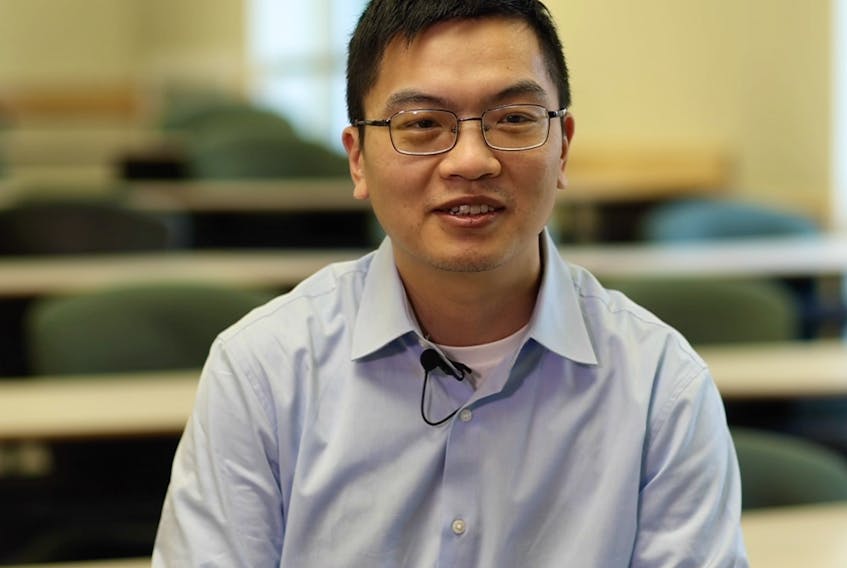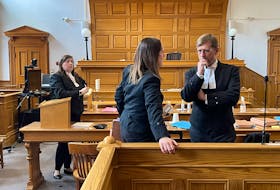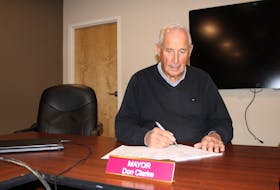Two Dalhousie University scientists are all charged up about their new research chair positions and roles in the university's partnership with Tesla.
Chongyin Yang is the Tesla Canada Research Chair and Michael Metzger is the Herzberg-Dahn Chair.
Metzger and Yang, contacted through a Teams chat this week, said they will also be working with Jeff Dahn, the NSERC/Tesla Canada Inc. Industrial Research Chair, and Canada Research Chair in Materials for Advanced Batteries at Dalhousie.
“Chongyin has obviously a lot of great experience making very innovative materials for lithium-ion batteries,” Metzger said. “I, myself, probably tend more towards the method development side – creating new analytic tools to study lithium-ion batteries. And with Jeff's background of being really a pioneer in the battery field over many decades, I think it could be a really exciting synergy that we can have between us and I think it can really help to bring Tesla forward. That's the idea and the end goal, I think.”
Yang has been working on materials and devices for energy conversion and storage for 12 years. Before joining Dalhousie, he was an assistant research scientist in the Department of Biomolecular Engineering at the University of Maryland.
Metzger graduated from the Technical University of Munich and developed innovative methods to study the lifetime and aging of lithium-ion batteries in close collaboration with BASF and BMW while pursuing his graduate studies.
“This (is) a very good opportunity for both of us, of course, as young scientists to start with,” Yang said. “This kind of laboratory and this kind of culture with the best EV company – Tesla – it's going to be a very good job opportunity for us.”
He also lauded the chance to bring the three different backgrounds and specialties together to try to fix problems and present better batteries for electric vehicles (EV) or even storage solutions.
“I think Jeff always had this big dream (of) creating this kind of big industry (and) academic complex here in Nova Scotia for the batteries (and) for the energy storage industry,” Yang said
He foresees a team in Halifax to focus on more fundamental research and attract more companies join in on work on lithium-ion batteries.
“If that's going to be true in the future, it will be like – there is Silicon Valley in California – so, I guess there would be some kind of Battery Valley here,” Yang said.

Metzger said he is excited to be working with so many great researchers at Dalhousie, where there is a “clear commitment” to battery research and clean energy technologies.
“And then, obviously, it's also great to work here with all the super-bright students that we have and I think that's also something that really gets me excited about the opportunity here because a part of our job is obviously also to good teaching and work with young, motivated folks that want to learn more about lithium-ion batteries,” he said.
“And ultimately, I think this can also be very important for the industry, not only here in Nova Scotia, but really worldwide, really, if we see where all the people go that went through Jeff's training in the lab. I think it's really important, also, to train new scientists to grow our field.”
Yang's research will seek lower-cost batteries that last longer as well as higher-energy battery technologies
“My group … is focused more on the next-generation battery materials,” Yang said. “Maybe more sustainable, better materials with no heavy metals being in it, with a low cost and still produce the same energy levels (and) energy density.”
Metzger’s research group will focus in part on developing new diagnostic tools for lithium-ion batteries.
“So, we really want to understand the fundamental processes and I think that's a prerequisite,really, for making lithium-ion batteries better.”
He also wants to focus on lithium metal batteries that don't use the typical materials on the anode side like graphite but either lithium metal or are “completely anode-free, as we say.”
A third topic looks into involving salt ions from water in something called a desalination battery.
“In general, I just think it's going to be a really exciting future here … especially since Tesla has now renewed our partnership and we can all three contribute and bring new techniques and materials, new ideas to this whole project,” Metzger said. “I think it will be a real push and I'm really excited to see where all this takes us.”
The initial research agreement between Dalhousie University and Tesla was signed in June 2015. The partnership has been renewed until at least 2026.









